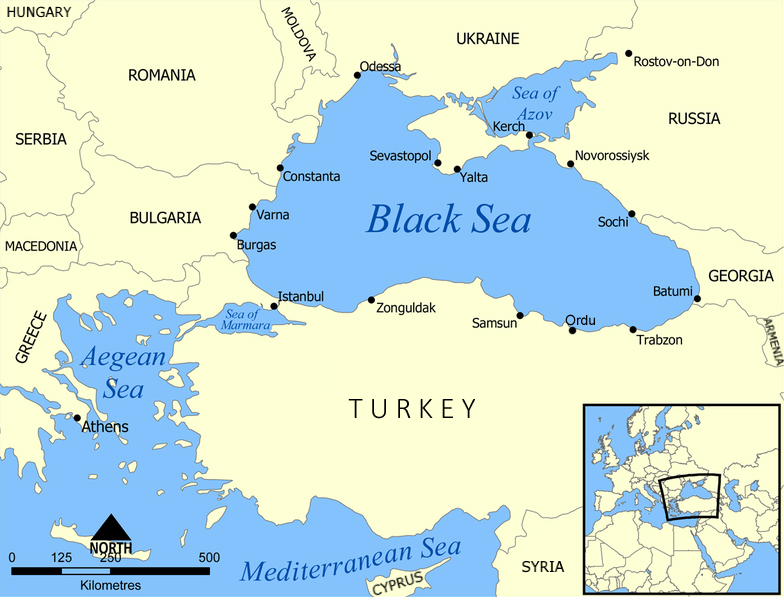
From Syria to the Black Sea: Containing Russia, Partnering with Turkey?

- EU and strategic partners,
- EU strategy and foreign policy,
- Europe in the World,
- Middle-East / North Africa,
The outcome of the Russo-Turkish power competition in Syria will impact the balance of power in the Eastern Mediterranean and the Black Sea. This, in turn, will impact the outcome of any peace negotiations with Ukraine and its relative position in the Black Sea. The future of Syria very much matters for the EU, therefore. Because blunting Russia’s attempts at achieving dominance over the Black Sea will play an important role in Europe’s security. And because the Syrian coast is only 300KM from Cyprus, the EU’s southeastern most border. Syria is the EU’s neighbour for all intents and purposes. In Syria, the Eastern Mediterranean, and the Black Sea, Turkey and the EU finally have a key strategic objective in common.
SECURITY GUARANTEES FOR UKRAINE: THE NAVAL AND MARITIME DIMENSIONS
Any security guarantees for Ukraine, in a post-war arrangement, must include both a maritime and a naval component. Such guarantees will be anathema to Russia’s strategic aims in the Black Sea. The effectiveness of these guarantees will depend to a great degree on how Turkey will decide to exercise control over Russia’s access to the Eastern Mediterranean under the Montreux Convention of 1936, which puts the two straits of the Dardanelles and the Bosporus under Turkey’s sovereignty and control, notably also in times of war.
In other words, the guarantees will depend on the outcome of two negotiations. The first are those currently talked about concerning Ukraine and Russia. But secondly, there will have to be parallel negotiations between the EU and Turkey on how the EU, or the Coalition of the Willing, can deploy naval forces from the Eastern Mediterranean to the Black Sea to give effect to the naval element of the peace guarantees should Russia violate the terms of any future agreement. If these latter negotiations are not already under way between Turkey and the EU, they should be. The timing is right and the cause is ripe: there is common strategic interest between the two.
(Photo credit: Wikimedia Commons)